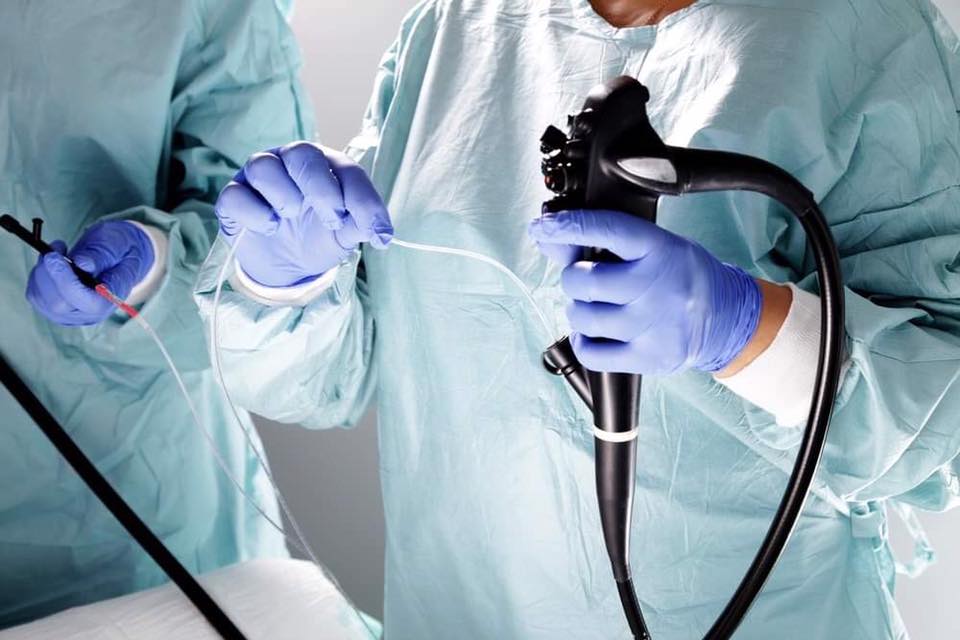Overview
GI Endoscopy refers to a medical procedure that allows for the examination and treatment of conditions within the gastrointestinal (GI) tract without the need for surgery or causing pain. This is accomplished using a flexible fiber optic endoscope, approximately the size of a finger, which is equipped with a camera. The endoscope is inserted either through the esophagus to explore the stomach and intestines or through the rectum to examine the large intestine. This advanced real-time imaging technology enables doctors to simultaneously diagnose and treat abnormalities as they are detected during the procedure.
The procedure provides exceptionally clear images with Full HD resolution, making it highly effective for identifying and treating various GI disorders. Images and video recordings captured during the procedure can be documented for ongoing treatment and evaluation.
Types of GI Endoscopy:
- Gastroscopy (Upper GI Endoscopy): Examines the esophagus, stomach, and upper part of the small intestine.
- Colonoscopy / Sigmoidoscopy (Lower GI Endoscopy): Examines the rectum, colon, and lower part of the small intestine.
At SLM Hospital, our GI endoscopy services are performed using the latest technology from Japan’s Olympus company. We utilize the CV-1500 system for upper GI endoscopy and the Colonoscope model CF-HQ 190L for lower GI endoscopy, providing the highest standard of care.
Advantages of GI Endoscopy:
GI endoscopy facilitates the early detection and immediate treatment of gastrointestinal diseases, making it a highly efficient diagnostic and therapeutic tool. Common gastrointestinal issues can be examined and treated promptly without causing significant discomfort to the patient. For example, small lesions (which may be pre-cancerous) can be excised, biopsies can be taken, bleeding areas can be treated with medication or diathermy, and other interventions can be performed during the same procedure. This means many GI conditions can be managed effectively without the need for invasive surgery.
Conditions Diagnosed with Gastroscopy:
- Diseases of the small intestine
- Heartburn (GERD)
- Presence of H. pylori bacteria, which can cause stomach ulcers or cancer
- Esophageal strictures
- Gastric ulcers
- Stomach cancer
- Esophageal cancer
- Esophageal damage due to acid reflux
- Cirrhosis of the liver
- Portal hypertension (increased pressure in the liver’s portal vein)
Consultation fees, diagnostic tests, sedation (if required), and any additional emergency procedures are not included in the standard endoscopy package.
Safety Protocols:
To ensure patient safety and prevent the spread of infections such as HIV, Hepatitis B and C, and TB, our endoscopic instruments are thoroughly sterilized using internationally approved disinfectants. We adhere to global standards for cleaning and reprocessing endoscopic equipment.


